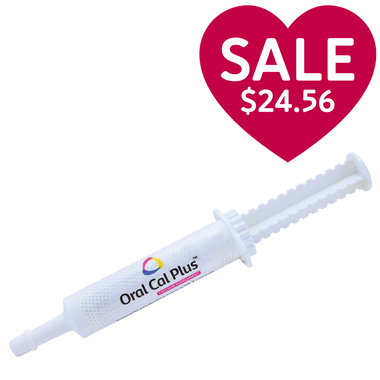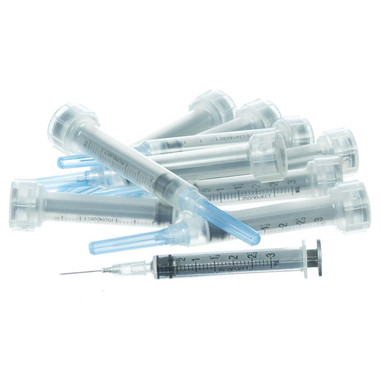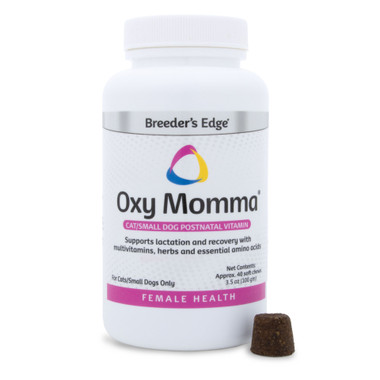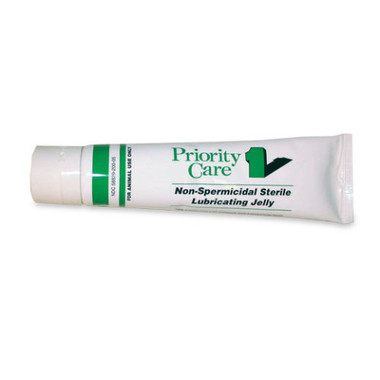Understanding Dog Appetite Stimulants
Estimated 0 min read
Appetite stimulants for dogs have become increasingly important tools in veterinary medicine. In fact, it has become a common concern among pet owners: what to do when Fido loses interest in food. A dog’s appetite is a vital sign of their overall health, and a sudden decrease can be alarming.
This quick blog explores the reasons behind appetite loss in dogs and the science of appetite stimulants. We’ll explore the various options available to help your canine companion regain their enthusiasm for mealtime. Whether you’re dealing with a picky eater or one facing health challenges, these solutions can make a significant difference in your pet’s quality of life.
What to Know About Dog Appetite Stimulants
- Loss of appetite in dogs is caused by various factors including stress, dental problems or gastrointestinal issues. It may indicate more serious health concerns like kidney disease or cancer
- Appetite stimulants work through different mechanisms such as manipulating neurotransmitters, mimicking hunger hormones, or blocking histamine receptors to increase a dog’s interest in food
- Options for stimulating a dog’s appetite range from pharmaceutical drugs like mirtazapine and capromorelin to natural alternatives such as CBD oil, vitamin B complex, and herbs like ginger

Disinterested in food
Understanding Why Dogs Lose Their Appetite
When our canine companions suddenly lose interest in food, it is a cause for concern for any pet owner. Loss of appetite in dogs, medically known as anorexia, can stem from minor issues to more serious underlying health problems.
Anxiety
One of the most common reasons for a dog’s decreased appetite is stress or anxiety. Changes in his environment, such as moving to a new home, the arrival of a new family member, or even alterations in their daily routine, can cause temporary loss of interest in food.
Teeth issues
Dental problems are another frequent culprit behind appetite loss. Tooth decay, gum disease, or oral injuries can make eating painful, so they avoid food altogether. Regular dental check-ups and proper oral hygiene can help prevent these issues.

Could it be an upset stomach?
Upset Stomach
Gastrointestinal upset is a significant factor that causes your pooch to turn away from their food bowls. Conditions such as gastritis, inflammatory bowel disease, or infections may lead to nausea, vomiting, and a reluctance to eat. In some cases, the presence of intestinal parasites interfere with a dog’s desire to eat.
Kidney Disease
More serious health concerns that may manifest as a disinterest in food include kidney disease, liver problems, and cancer. These conditions often affect the body’s metabolism and can alter the way a dog processes and desires food. Hormonal imbalances, such as those seen in Addison’s disease or hypothyroidism, also play a role in diminishing a dog’s interest in eating.
It’s important to note that some medications have side effects that include a decrease in appetite. If your dog has started a new medication and shows little interest in food, discuss this with your veterinarian. Your vet will possibly have alternatives or adjustments to the treatment plan.

Dogs need a balanced diet
When to Seek Help for a Dog Losing its Appetite
When a dog’s appetite decreases, it’s crucial to pay attention to other accompanying symptoms. Lethargy, excessive thirst, changes in urination patterns, or visible discomfort all provide valuable clues about the underlying cause of the appetite loss. Monitoring these signs and sharing them with a veterinarian helps in reaching an accurate diagnosis and appropriate treatment plan.
While occasional skipping of meals may not be cause for immediate alarm, prolonged loss of appetite leads to serious health consequences. Canines require a balanced diet to maintain their energy levels, support their immune system, and ensure proper organ function. Extended periods without adequate nutrition can result in weight loss, muscle wasting, and a weakened immune response, making the dog more susceptible to other health issues.
Given the complex nature of appetite loss in dogs and its implications, it’s vital for pet owners to be vigilant and proactive. If your dog shows a persistent lack of interest in food, especially if it’s longer than 24 to 48 hours or there’s other worrying symptoms, call your Vet. A thorough examination, potentially including blood work, urinalysis, and imaging studies, will identify the root cause and guide the appropriate course of action.

Let’s get that appetite back!
Types of Dog Appetite Stimulants and How They Work
One of the primary mechanisms by which appetite stimulants function is through the manipulation of neurotransmitters in the brain. Mirtazapine, for instance, acts as an antagonist at serotonin receptors, stimulating appetite centers in the brain. This makes mirtazapine particularly effective in dogs experiencing both depression and loss of appetite.
Capromorelin, marketed under the brand name Entyce, mimics the action of ghrelin, often referred to as the “hunger hormone.” By binding to ghrelin receptors, capromorelin tricks the body into feeling hungry. This mechanism is particularly beneficial for dogs suffering from conditions that lead to cachexia or muscle wasting.
Cyproheptadine, another commonly used appetite stimulant, works by blocking histamine receptors in the brain. While primarily known as an antihistamine, its appetite-stimulating effects are a welcome side benefit in veterinary medicine. By altering the balance of neurotransmitters, cyproheptadine can overcome the appetite suppression often seen in stressed or sick pups.
The expected results and timeframes for these appetite stimulants varies significantly depending on the underlying cause and the specific medication used. Generally, improvements in appetite can be observed within a few days of starting treatment. Mirtazapine often shows effects within 24 to 48 hours, while capromorelin may stimulate appetite within just a few hours of administration. However, it’s important to note that sustained improvement in appetite and weight gain typically takes several weeks.
Types of Natural Remedies for Stimulating a Dog’s Appetite
The choice between pharmaceutical and natural stimulants depends on the underlying cause, the severity of the condition, and the individual dog’s health status. While pharmaceutical options offer potent and targeted effects, they may come with a higher risk of side effects. This then necessitates increased vigilance by you, the dog’s owner. Natural alternatives, while they provide a gentler approach, can be less predictable. In many cases, a combination of pharmaceutical and natural approaches, tailored to your dog’s needs, yields the best results.

CBD for dogs
CBD products
For example, CBD oil has gained attention for its potential to stimulate appetites in dogs. Derived from hemp plants,CBD oilinteracts with the endocannabinoid system, which plays a role in regulating appetite among other physiological processes. While research in dogs is still emerging, some pet owners report increased interest in food after administering CBD oil. It’s important to note that the quality and concentration of CBD products can vary widely. Consultation with a veterinarian is important before starting any CBD regimen.
Supplements
Vitamin B complex supplements offer another natural approach to supporting your dog’s appetite. B vitamins play essential roles in metabolism and energy production. Deficiencies contribute to decreased appetite. Supplementing with a B complex help ensure that your dog’s body has the necessary nutrients to maintain a healthy appetite and energy level. These vitamins are water-soluble, meaning excess is excreted in urine, hence they’re a safe option dogs.
Natural Herb Remedies
Herbs such as ginger and peppermint have a history in traditional medicine to support digestive health and stimulate appetite. Ginger, known for its anti-nausea properties, helps alleviate stomach discomfort that has caused a lack of interest in food. Peppermint, with its soothing effects helps create a more comfortable internal environment that encourages eating. These herbs can be offered in small amounts, in the form of teas or very dilute essential oils. But they should always be used under veterinary guidance to ensure safety and appropriate dosing.

Be mindful of dosage
How to Give Dog Appetite Stimulants Safely
Proper administration and dosage are essential factors in the success of appetite stimulant therapy. Most pharmaceutical canine appetite simulants are available in tablet form. However, some, like capromorelin, are offered as oral solutions for easier administration. Dosages are calculated based on your dog’s weight, and it’s critical to follow veterinary guidance. Some appetite stimulants, such as mirtazapine, are given once daily or every other day, while others like capromorelin are administered daily.
Side effects
While appetite stimulants can be highly effective, they are not without potential side effects. Common side effects of mirtazapine include sedation or, paradoxically, hyperactivity in some dogs. Gastrointestinal effects such as vomiting or diarrhea may occur, particularly at the start of treatment. Capromorelin, while generally well-tolerated, can cause increased thirst and urination in some dogs. Cyproheptadine may lead to drowsiness or dry mouth. Pet owners must monitor their dogs closely and report any adverse reactions to their veterinarian promptly.
In some cases, appetite stimulants may interact with other medications or exacerbate certain health conditions. For instance, mirtazapine should be used with caution in dogs with liver or kidney disease. Capromorelin’s effects on increasing growth hormone levels mean it should be used carefully in dogs with certain types of cancer.
Get Consultation
The decision to use pharmaceutical dog appetite stimulants should always be made in consultation with a veterinarian. While these medications are powerful tools in managing appetite loss, they are most effective as part of a comprehensive treatment plan.
While dog appetite stimulants can be powerful tools, they’re just one piece of the puzzle in keeping your dog happy and healthy. At Banixx, we’re committed to providing you with the knowledge and resources you need to be the best pet parent possible. We encourage you to continue exploring ourblogs on dog care, and remember that a well-informed canine owner is a dog’s best ally.
If you are interested in how to maintain yourdog’s ears, or handle anear infection, we cover that. Or are you interested in more quirky items ? such aswhen to worry about eye boogers, orWhy your dog sleeps against you? Yes, delve into those areas for you too!Together, we can ensure that your canine companion enjoys a long, healthy, and hungry life.
Sources
https://www.petmd.com/dog/nutrition/appetite-stimulants-dogs
https://www.dvm360.com/view/case-study-stimulating-appetite-geriatric-dog-with-chronic-comorbidities


















